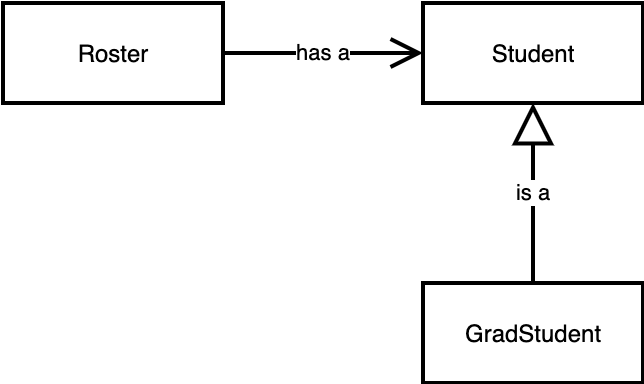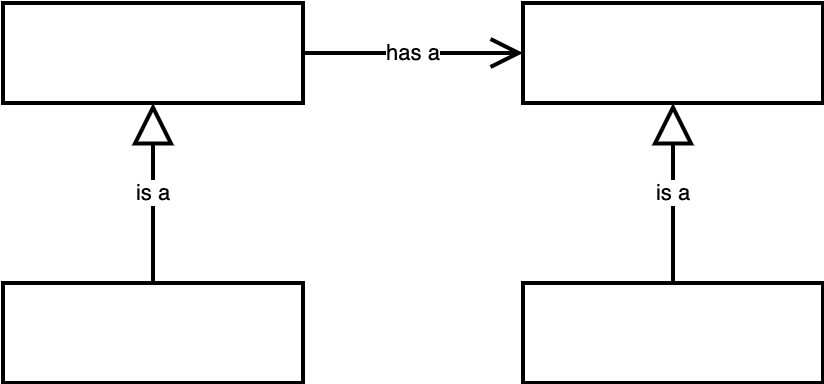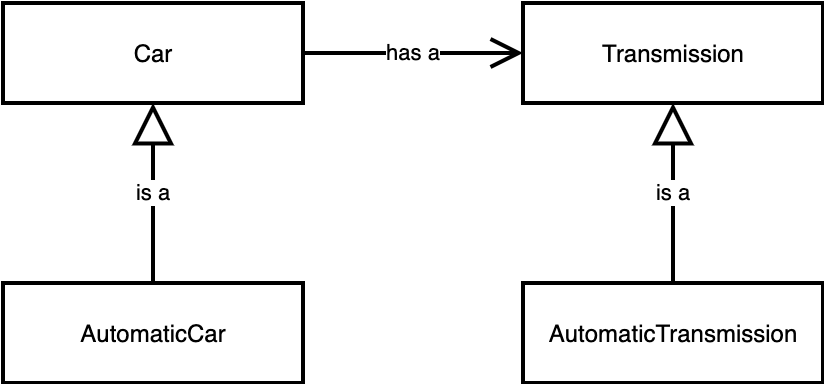Is-a Relationship
- Recognize inheritance should be used to implement is-a relationship.
- Distinguish between is-a and has-a relationships.
- Arrange classes in a simple class diagram based on is-a/has-a relationships.
We have explored code reuse via inheritance. It is important to stress here the semantics of inheritance. Aside from reusing the implementation of the Student class, we've created a well-defined "is-a" relationship between the base type Student and the subtype GradStudent.
Inheritance should be used to model "is-a" relationships. Code reuse is an added advantage.
It's all too easy to misuse inheritance merely for code reuse. Inheritance is intended for creating type hierarchies. Before employing it, you must put it to "is-a" test. For example, replace GradStudent and Student with your subtype and base type in the following sentence. If the sentence makes sense, then inheritance is the way to go.
GradStudentis aStudentwith added attributes and/or behaviors.
Has-a relationship
The is-a relationship (Inheritance) can be contrasted with the has-a relationship (Composition) between types (classes).
Composition
Composition is observed when one type is made up of other types. It can be used to achieve code reuse and polymorphism.
For example, the roster is made up of students: Roster has-a Student. (The has-a relationship does not imply a multiplicity of one; a Roster has zero or more Student).

Exercise We are building a software solution for an automobile repair company. So far, we have the following classes: Car, AutomaticCar, Transmission, AutomaticTransmission. Can you arrange these classes into the following class diagram?

Solution
